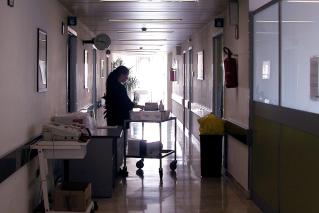 Photo by clarita at morguefile.com
Photo by clarita at morguefile.com
Following a months long public campaign by ACRI, Physicians for Human Rights – Israel and the Adva Center, the German Health Committee released a set of findings that adopt a large number of the organizations recommendations.
On Wednesday, June 25, the German Health Committee (so named after its Chairwoman – Minister of Health Yael German) released its conclusions regarding the future of Israel’s Public Health System. ACRI, Physicians for Human Rights – Israel and the Adva Center believe that the opposition of the committee to the introduction of private health services within Israel’s public hospitals is an extremely positive and significant achievement. The decision of the committee to commit to shortening waiting times at hospitals and to adopt the Full-Timer Agreements for doctors is another step towards resuscitating Israel’s public health system – even if the health budget remains inadequate. The commitment of the Minister of Health to restore the confidence of patients in the public health system and to lower out-of-pocket expenditure on health costs are other positive steps that are drawn from our position paper that was presented to the committee last year.
Despite the positive outcome of the committee’s deliberations, there are still many difficult steps that must be taken to restore the public’s faith in the public health system – and the final test will be in the implementation of these findings. While the committee has dedicated additional funding for health through the inclusion of a permanent formula that will compensate HMOs for the increasing number of insurees that incorporates demographic changes and announced its intention to set up a permanent budget for the inclusion of new technologies and drugs (a position that was objected to by the finance ministry), this is still insufficient to contend with the erosion that the health budget has suffered over the past 15 years. This erosion is the main rationale behind the trend towards privatization in health and other social services in this period.
A troubling outcome of the committee’s conclusions is the continued support for supplemental insurance policies and the institutionalization of medical tourism. Instead of confronting the issue of supplemental insurance policies – which are a combination of public and private insurance that encourages private health care – the Finance Ministry proposed a model that further entrenches the existence of private health care within the public system. Furthermore, the decision of the committee to institutionalize medical tourism within public hospitals, without providing for sufficient supervision by the Ministry of Health, will harm Israeli patients and increase the substantial waiting times that already exists for surgery in public hospitals.
Despite this, we believe that the positives of the committee’s conclusions far outweigh the negatives. The combination of strong public support for the public health system together with a critical media succeeded in standing against a broad coalition of interests that sought to further privatize the health system. Now is the time to return to a more egalitarian system of public health care and to implement all of the models that ACRI and its associates presented to the German Health Committee, and which are being submitted to the Knesset.
Additional Materials
ACRI’s Position Paper – “No Difference Between Poor and Rich”







